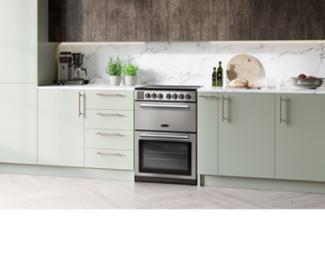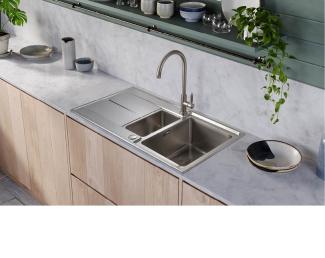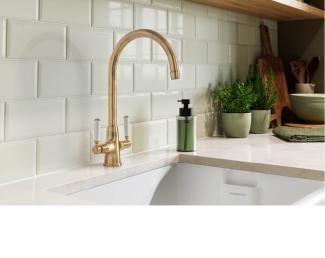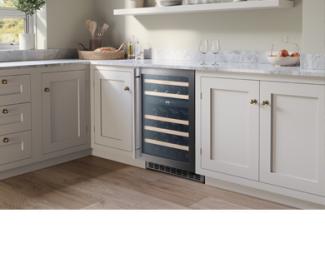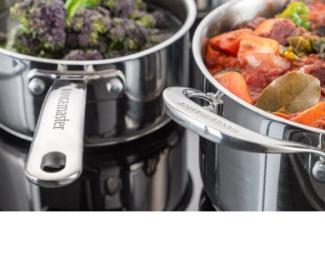The sink is one of the most important areas in your kitchen and keeping it clean is crucial for maintaining a healthy and hygienic environment. With so many different types of material and installation styles available, it can be hard to know where to start, so we are sharing our top five tips for keeping your new sink looking spick and span:
- Clean your sink regularly. This means wiping it down with a damp cloth after each use and scrubbing it with a mild soapy water solution at least once a week.
- Rinse off any food particles or spills immediately. This will help prevent them from sticking to the surface of the sink and becoming harder to remove.
- Use a sink strainer to catch food particles, and prevent them from going down the drain, keeping it clean and free of clogs or smells.
- Drain your sink after each use and keep it free of clutter. This will help prevent the growth of bacteria and make it easier to clean.
- Dry the sink with a soft cloth. This will help to prevent the build-up of water spots.

These tips work well for all sinks, although, some materials require a slightly different approach. For instance, baking soda is perfect for cleaning stainless steel sinks – and it can be found in most pantries. Simply rub it straight onto the bowl or drainer in a circular motion, then rinse with some white vinegar, which will react with the baking soda and fizz up to naturally disinfect the sink. You can also use a stainless steel cleaner, but be sure to follow the directions on the product label. To finish, dry the sink with a soft cloth to prevent water spots.

Fire-clay ceramic sinks, popular for the classic farmhouse look, benefit from regular cleaning with hot, soapy water and a soft cloth, rather than occasional heavy cleaning. To remove limescale deposits, try a mix of one part water and one part white vinegar, making sure you rinse and dry the sink thoroughly afterwards.

Granite sinks are durable, benefitting from a nonporous surface that repels microbes and stains – thereby making them much easier to clean. Hot, soapy water will remove most debris, but avoid using abrasive creams or powders, concentrated caustic soda or anything highly corrosive.
By following these tips, you can keep your kitchen sink clean, tidy and looking pristine.








